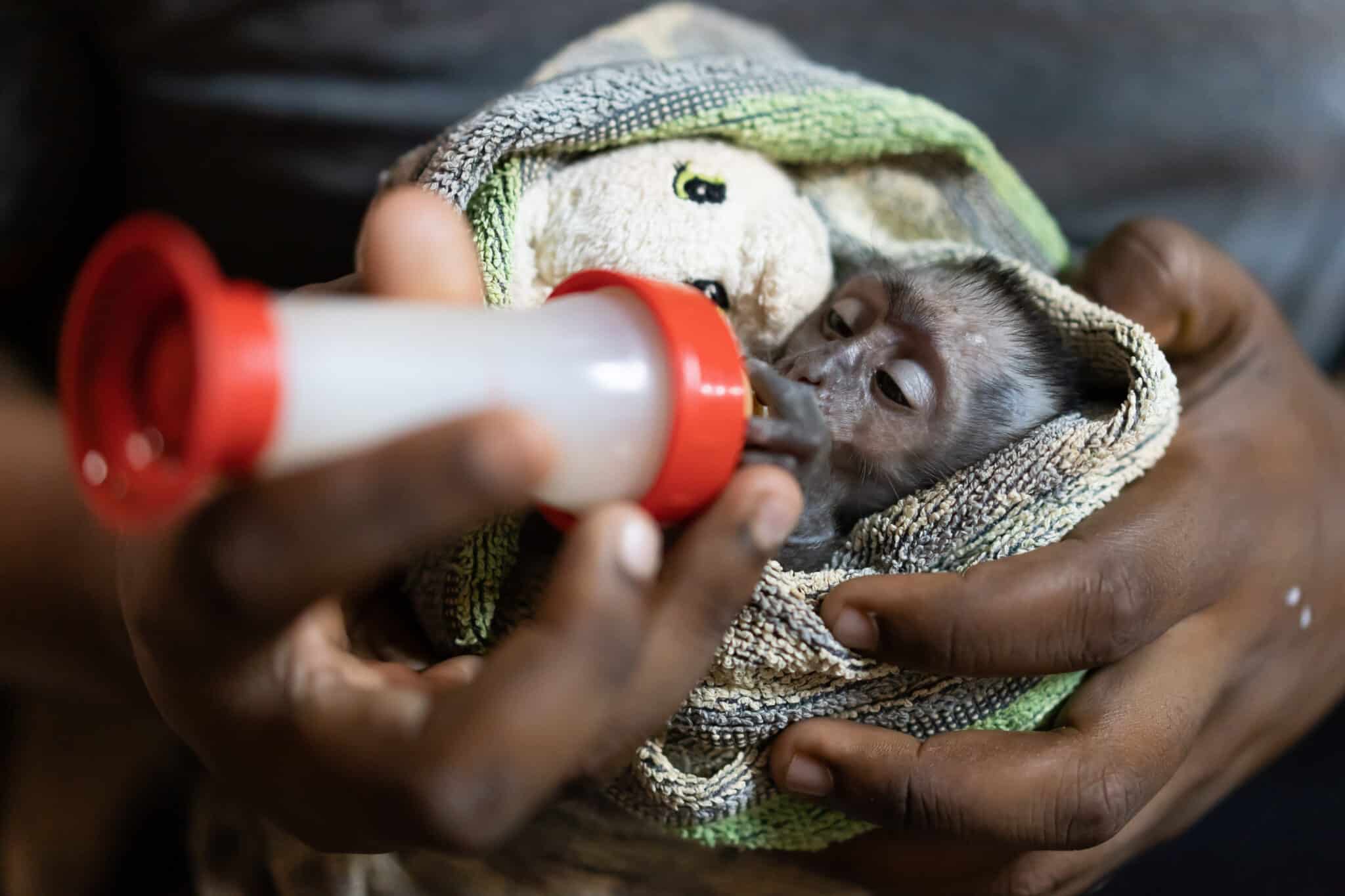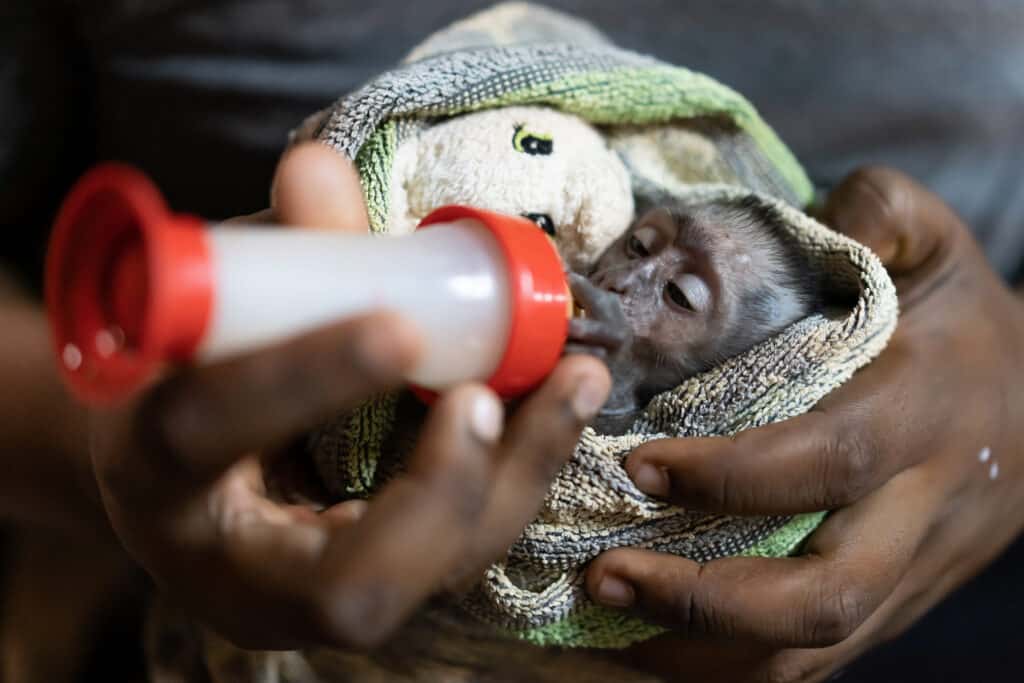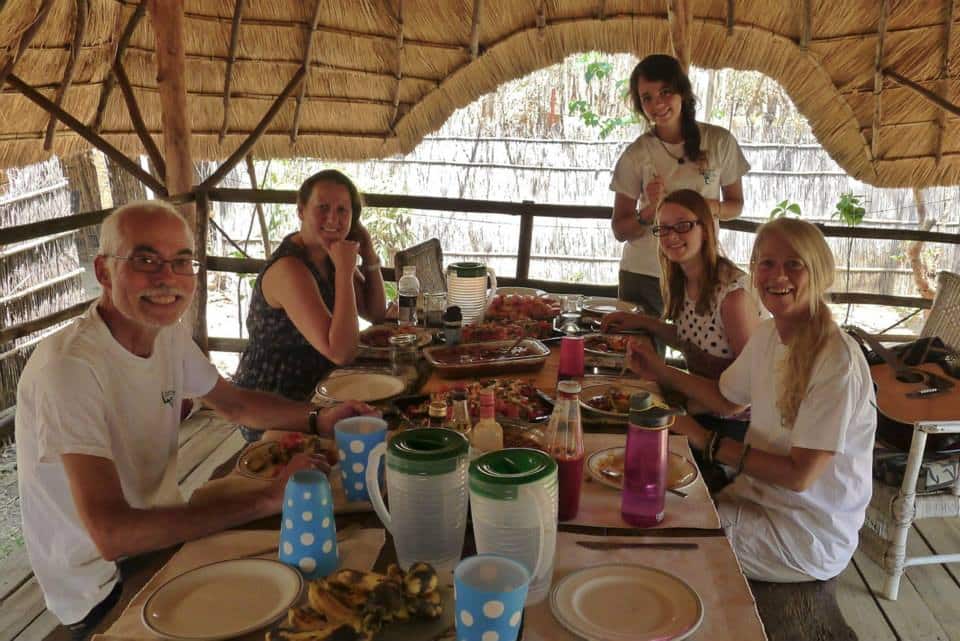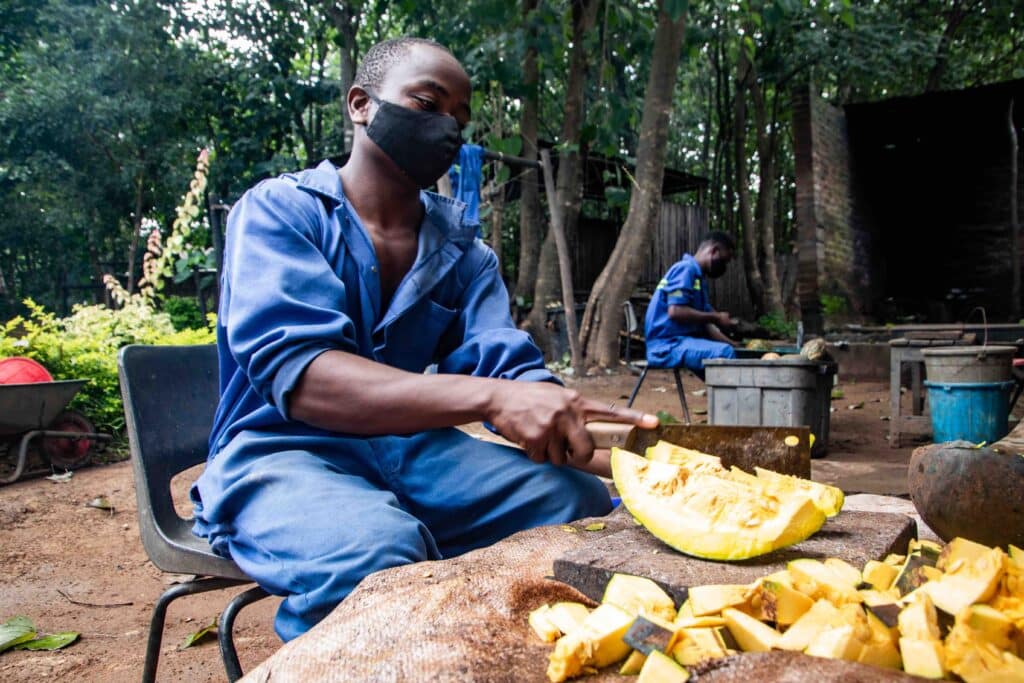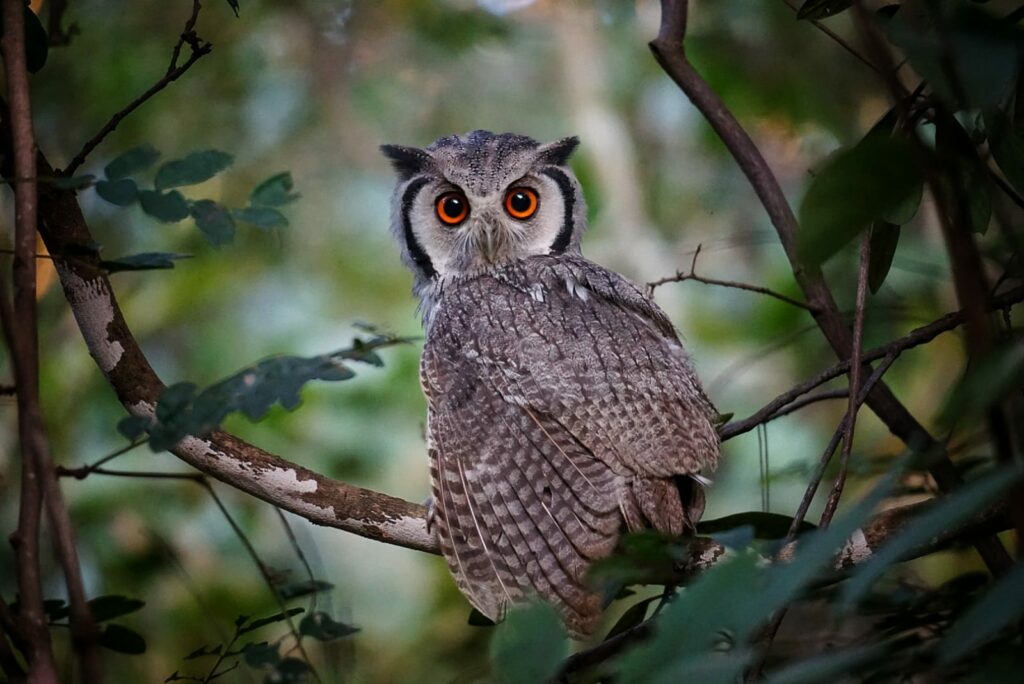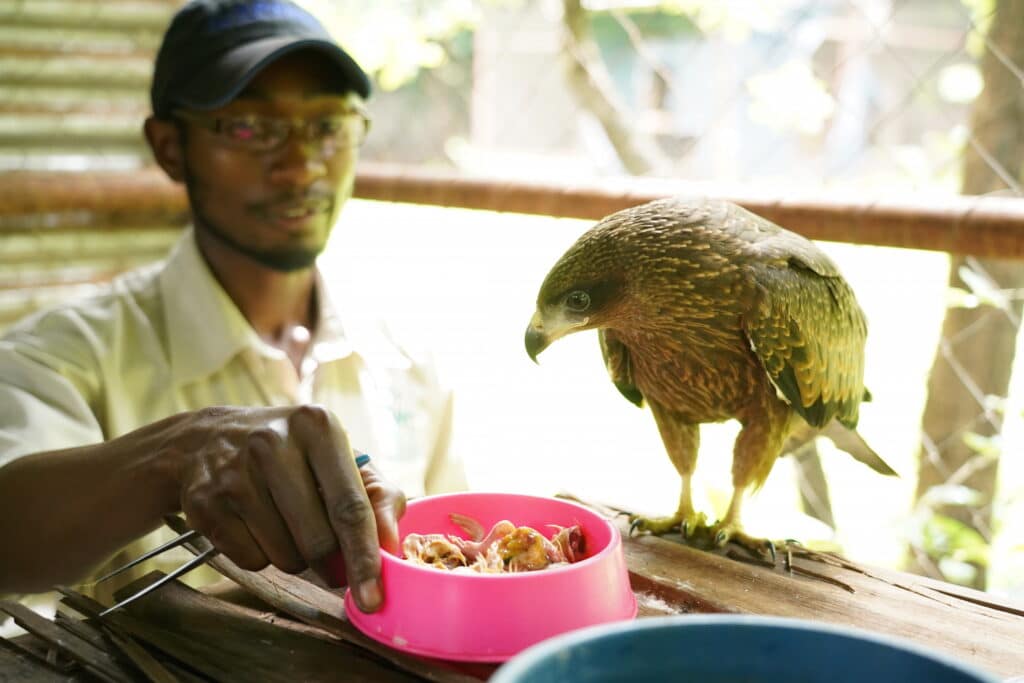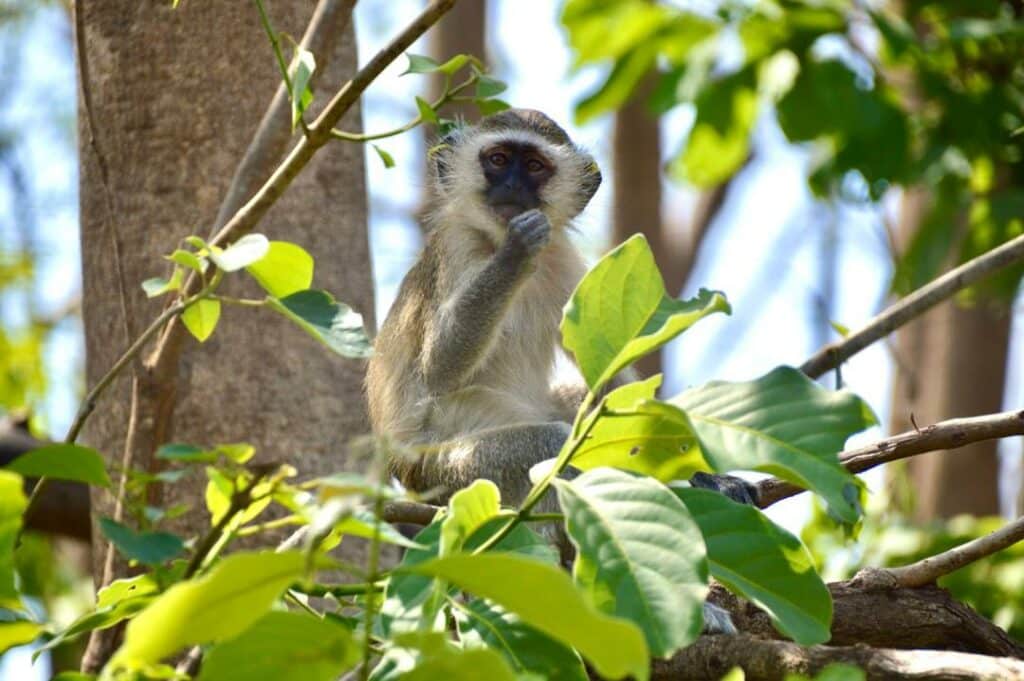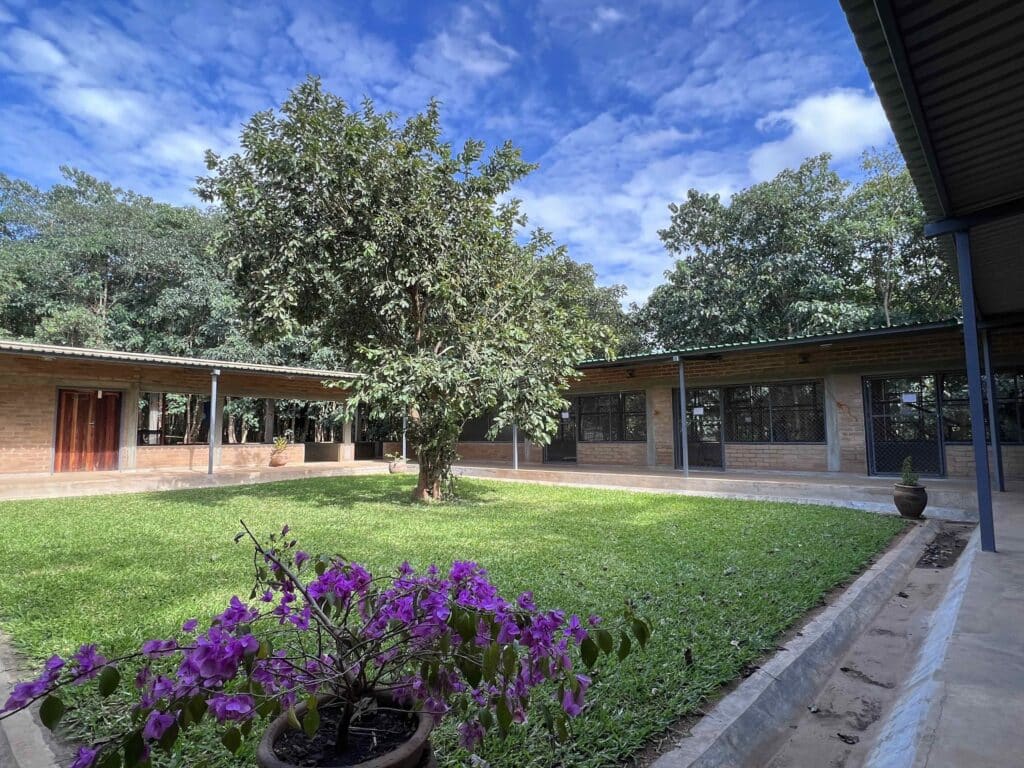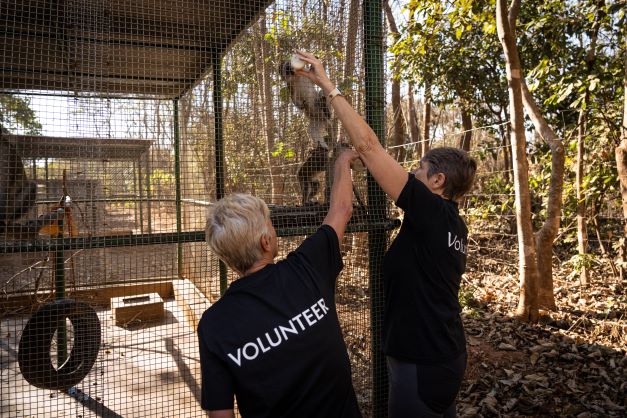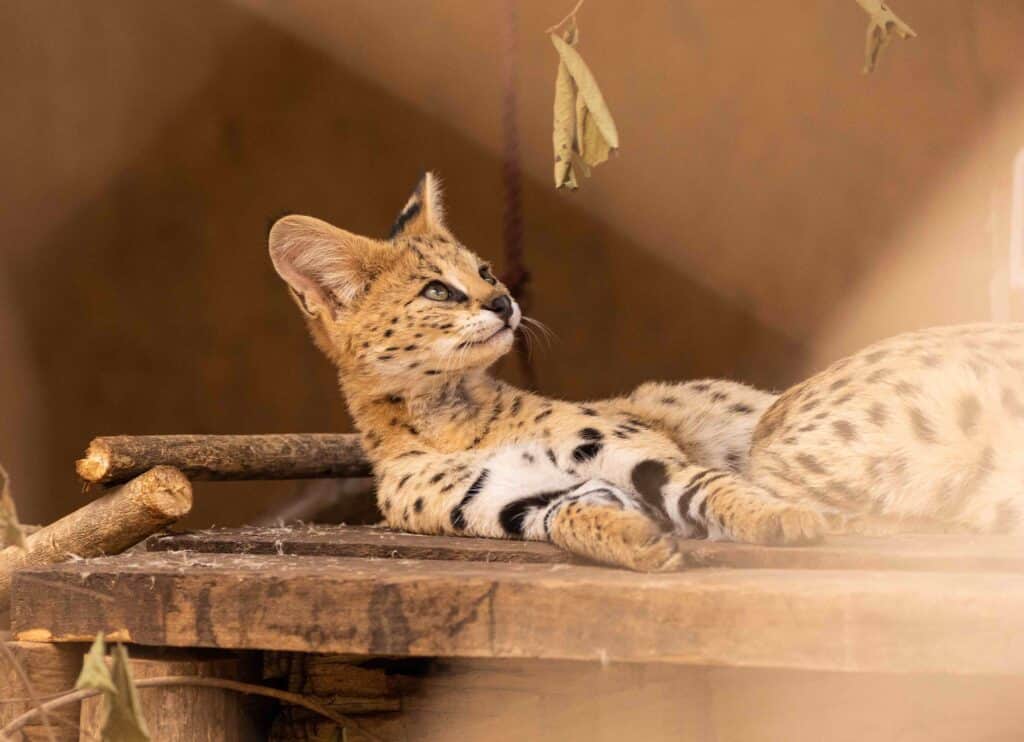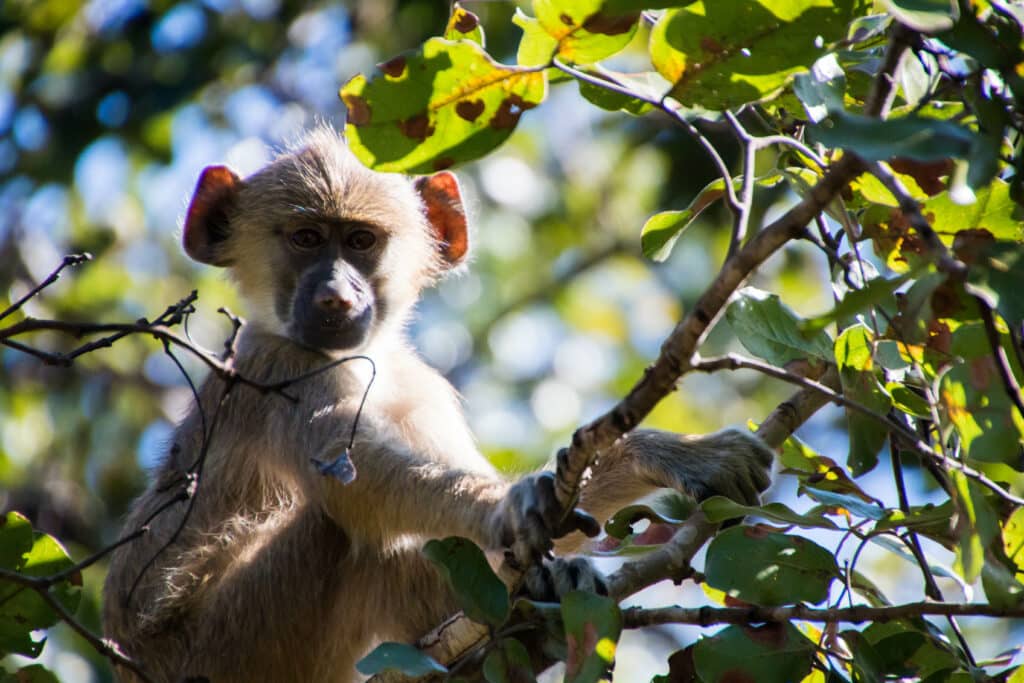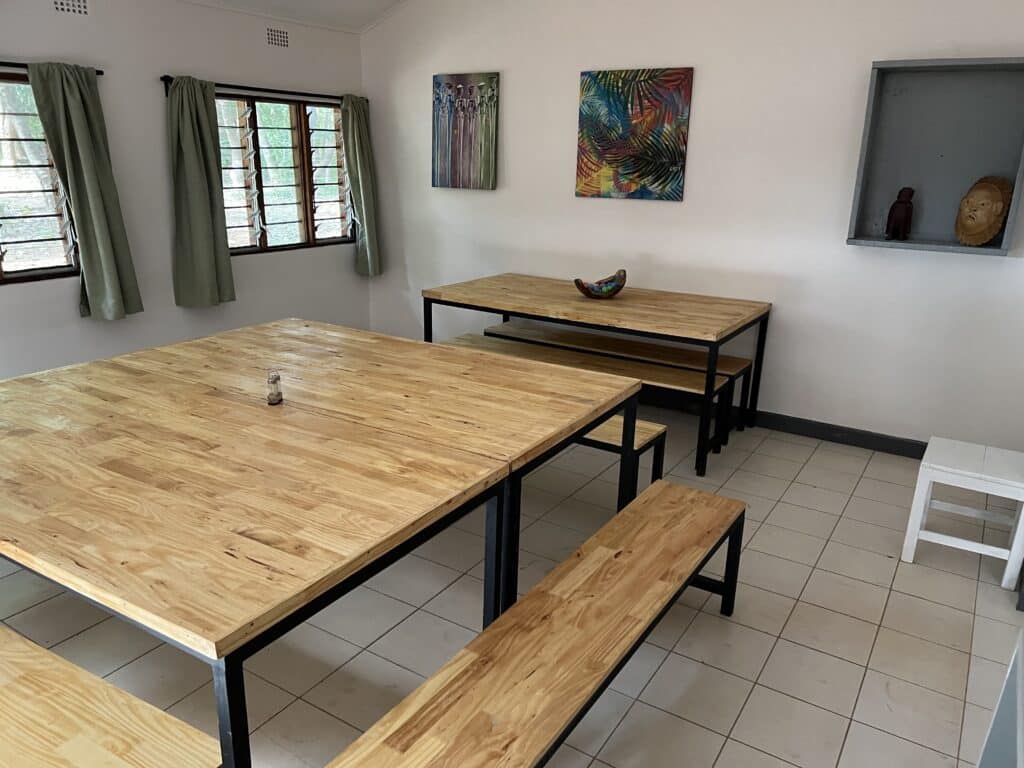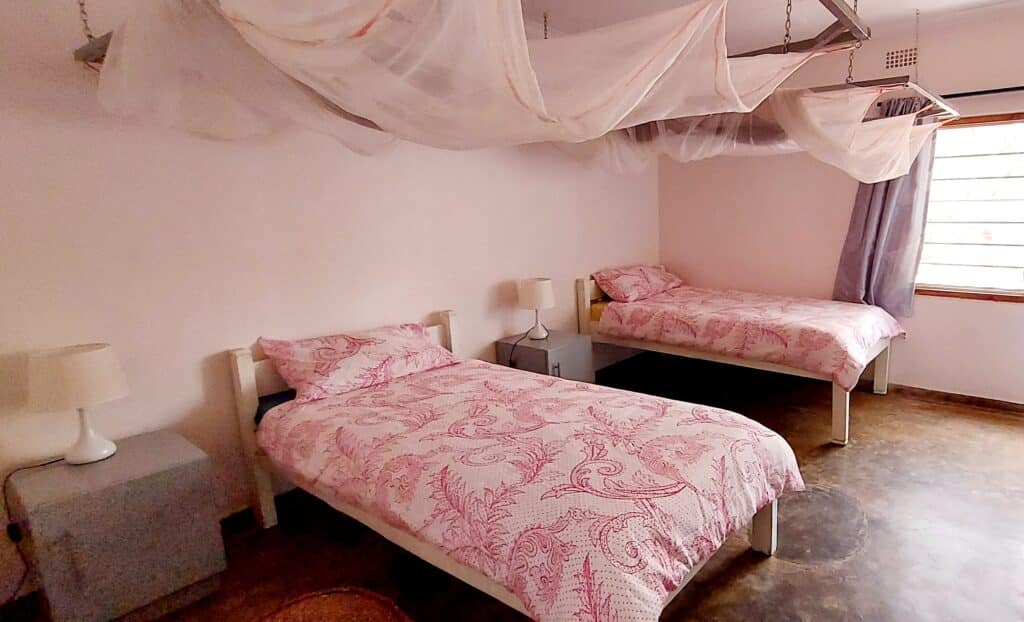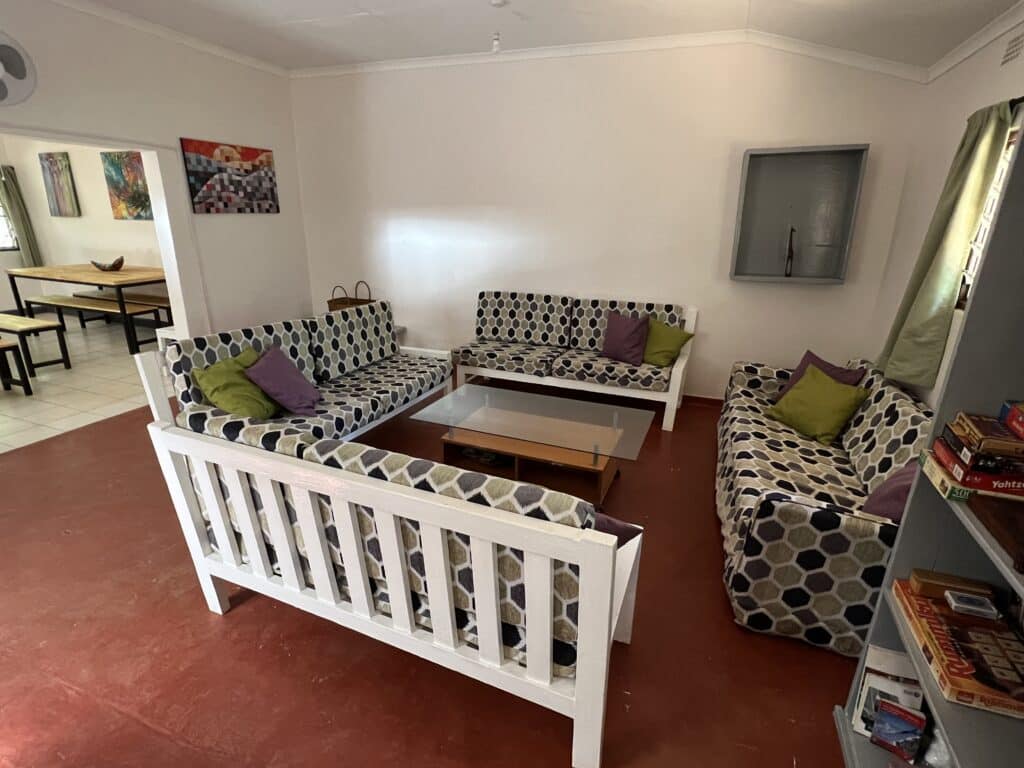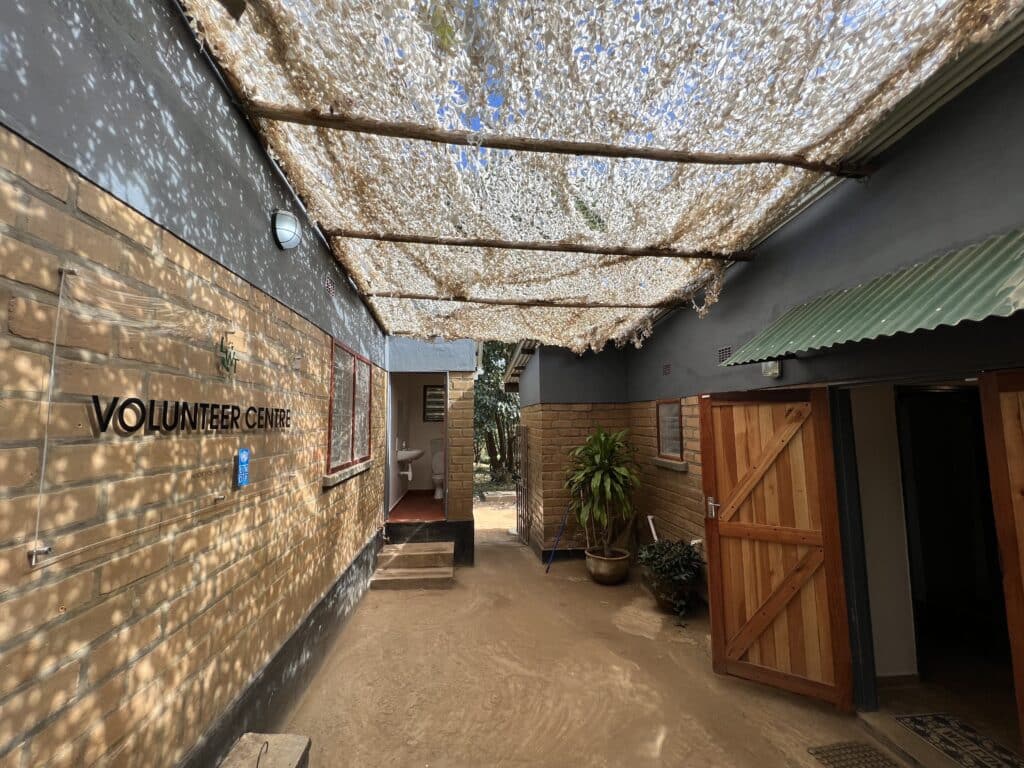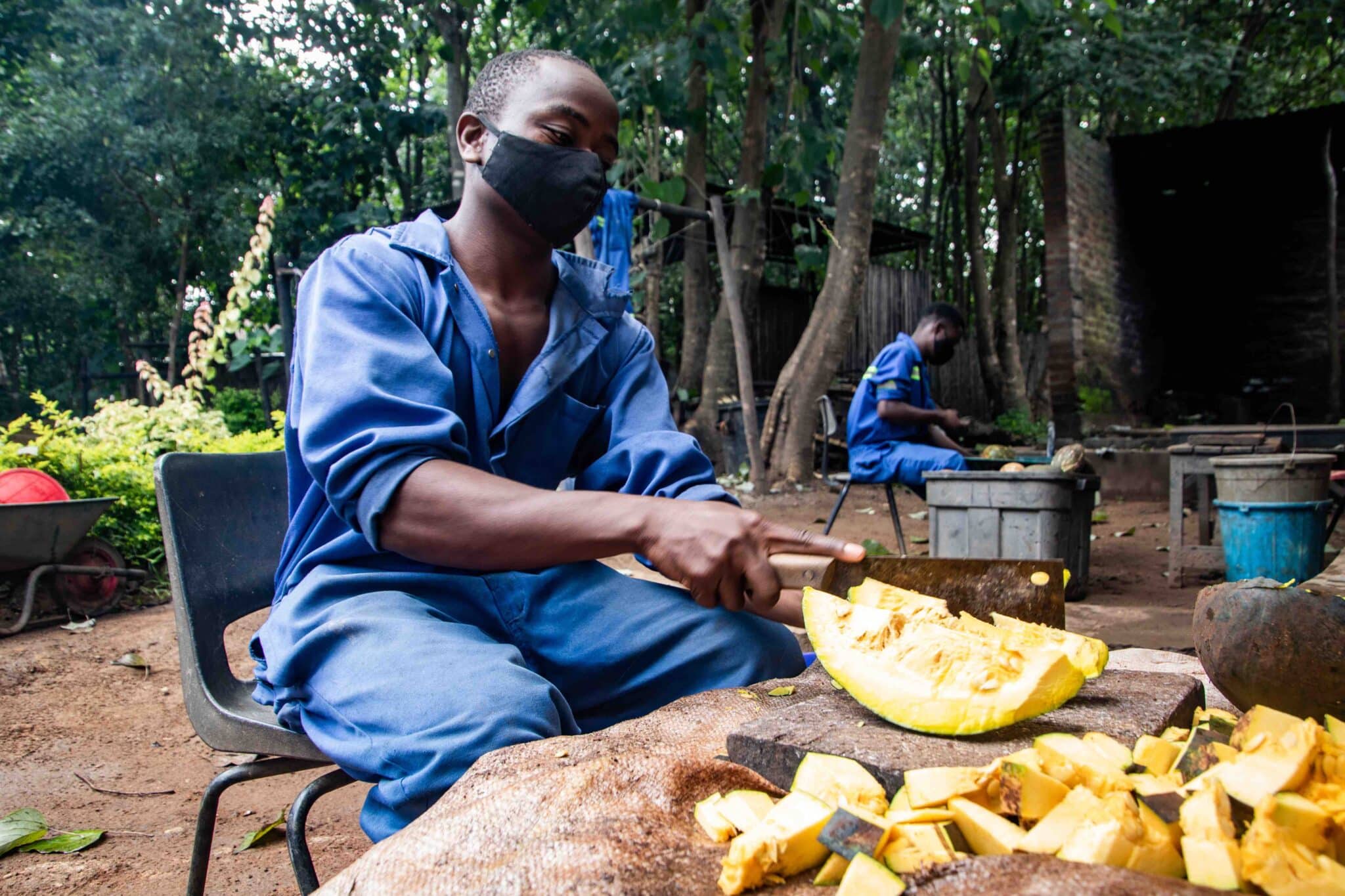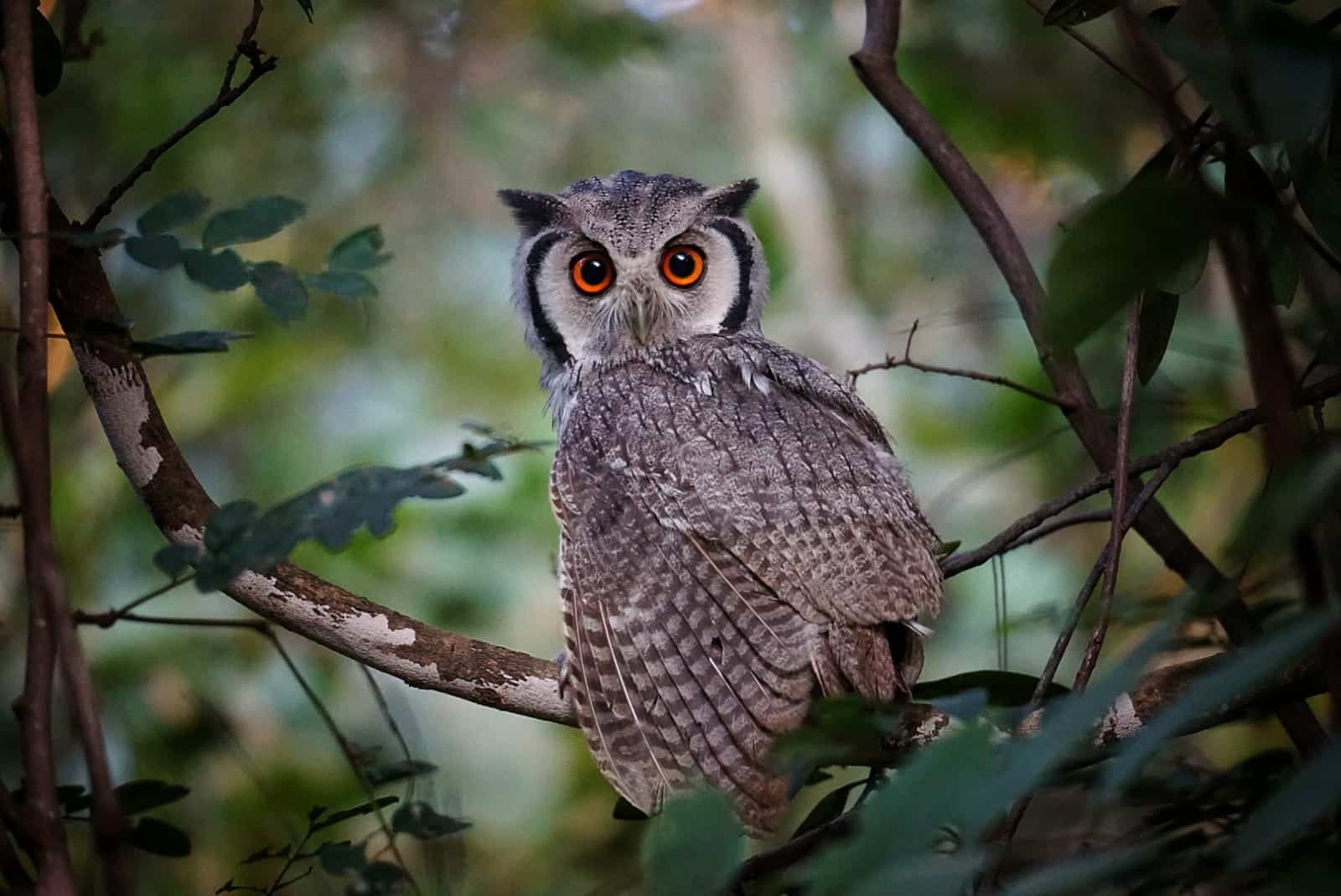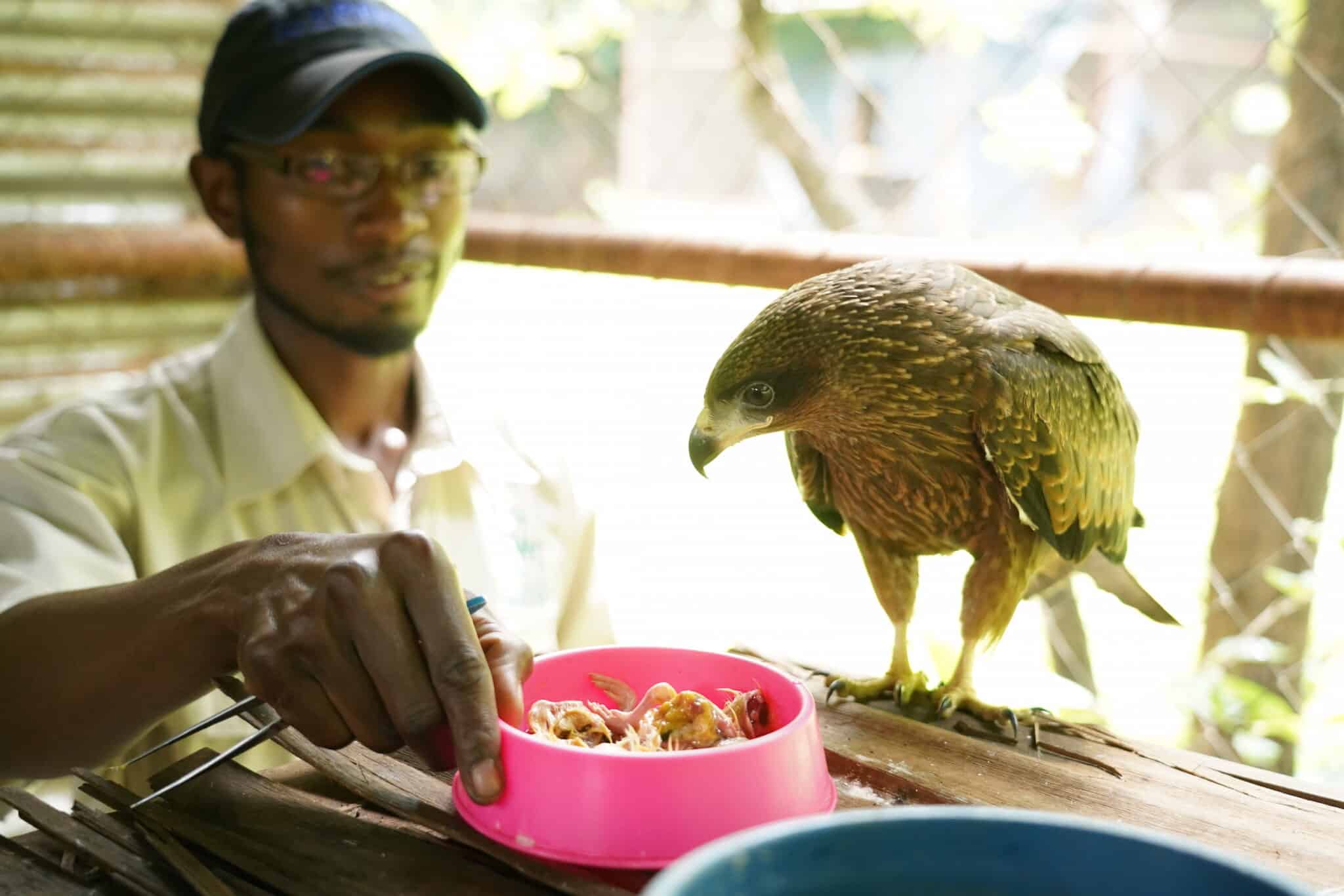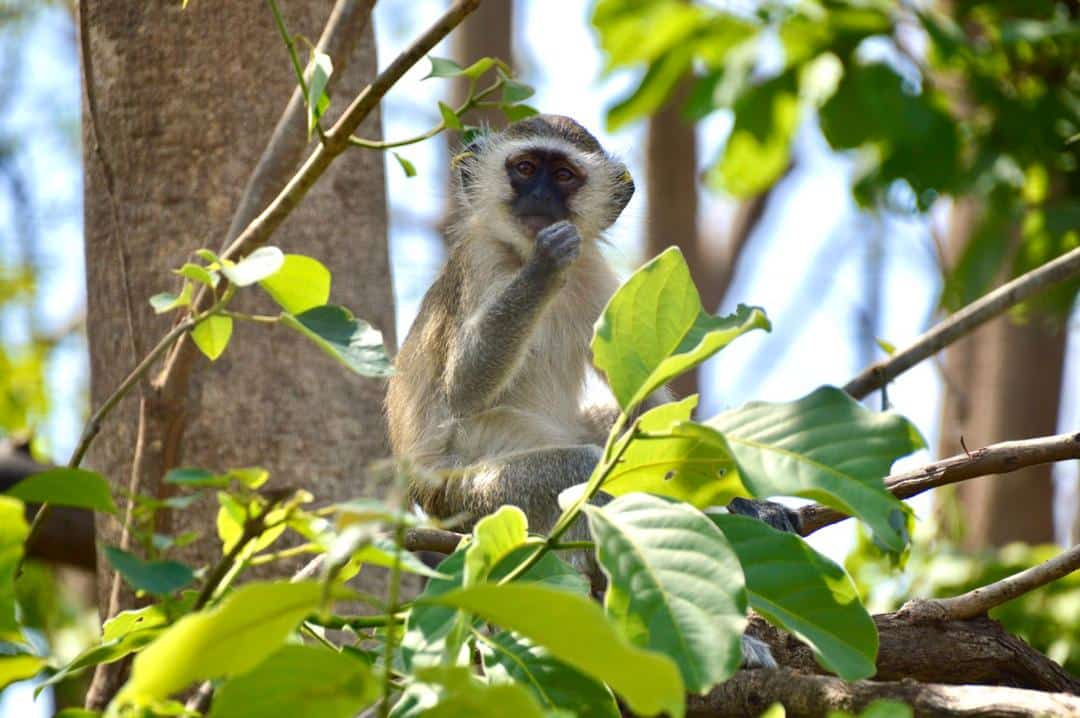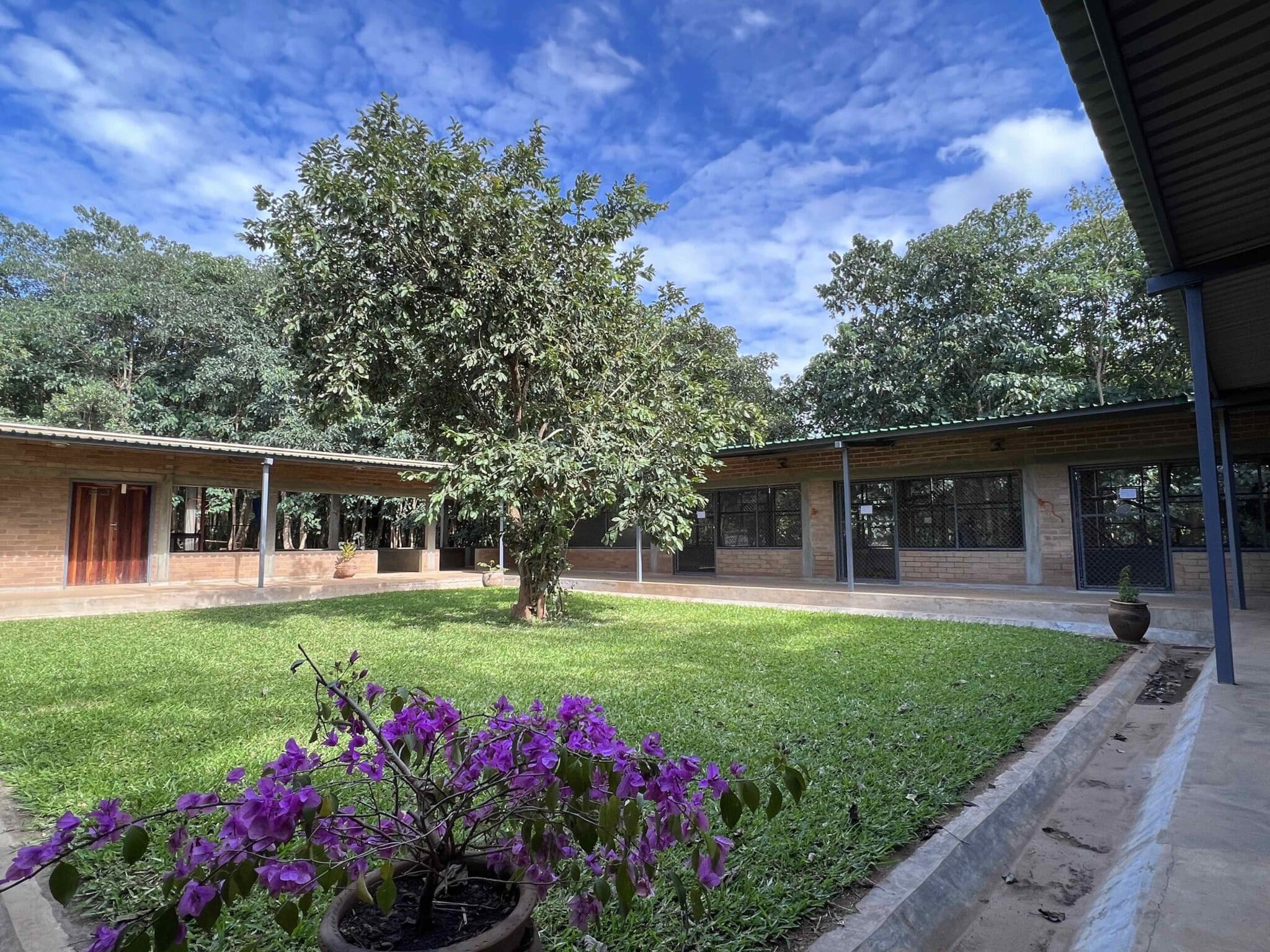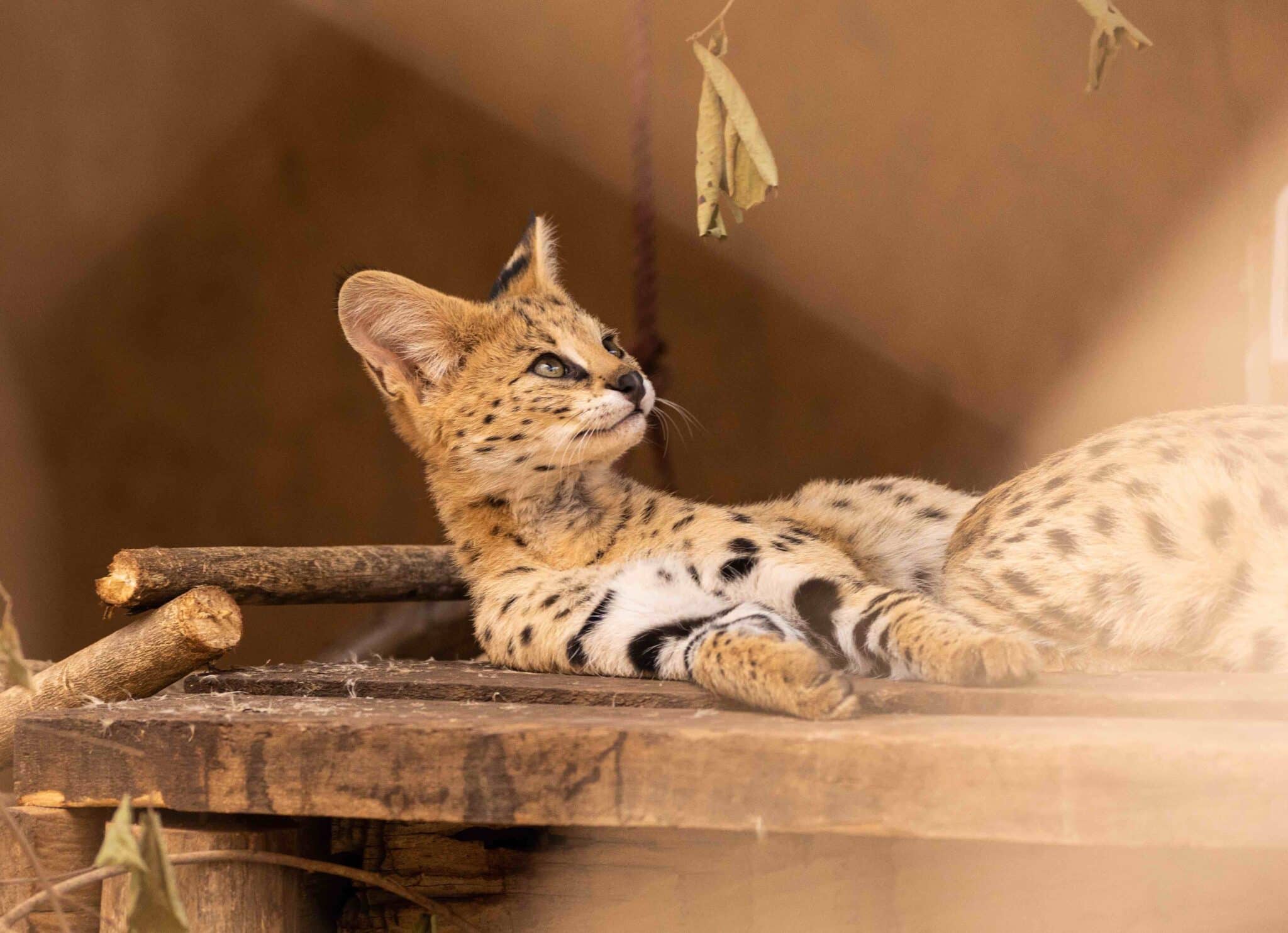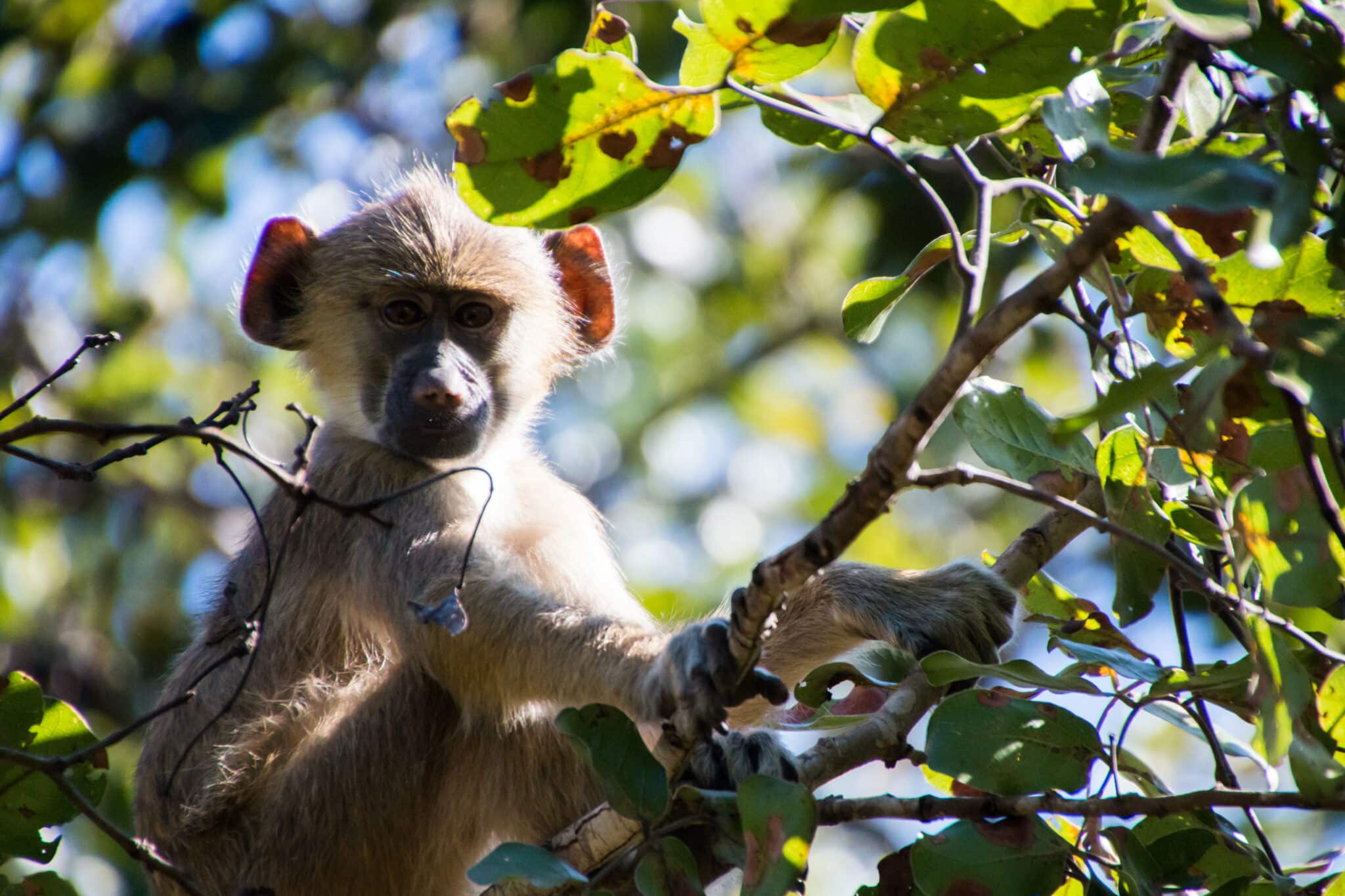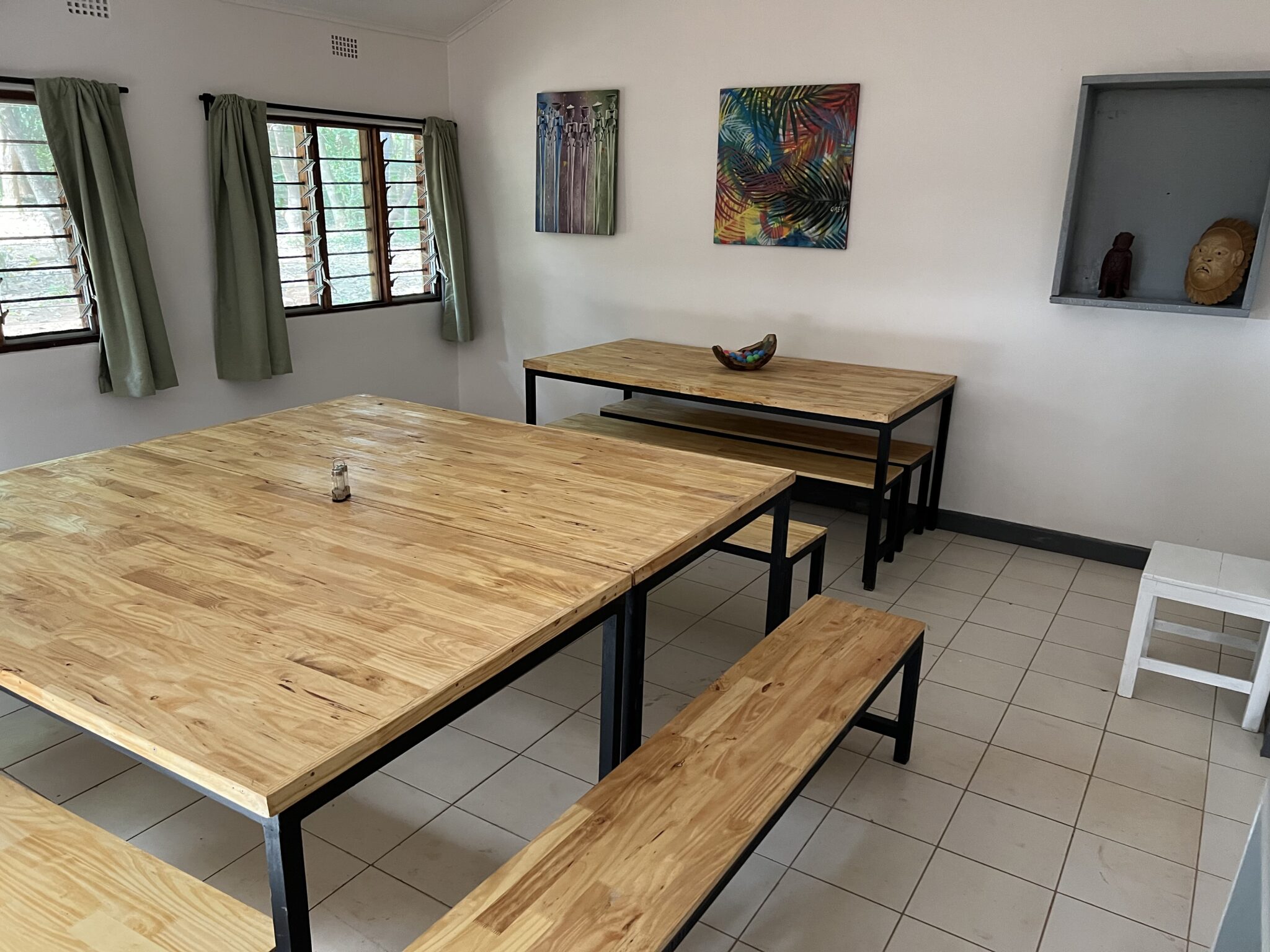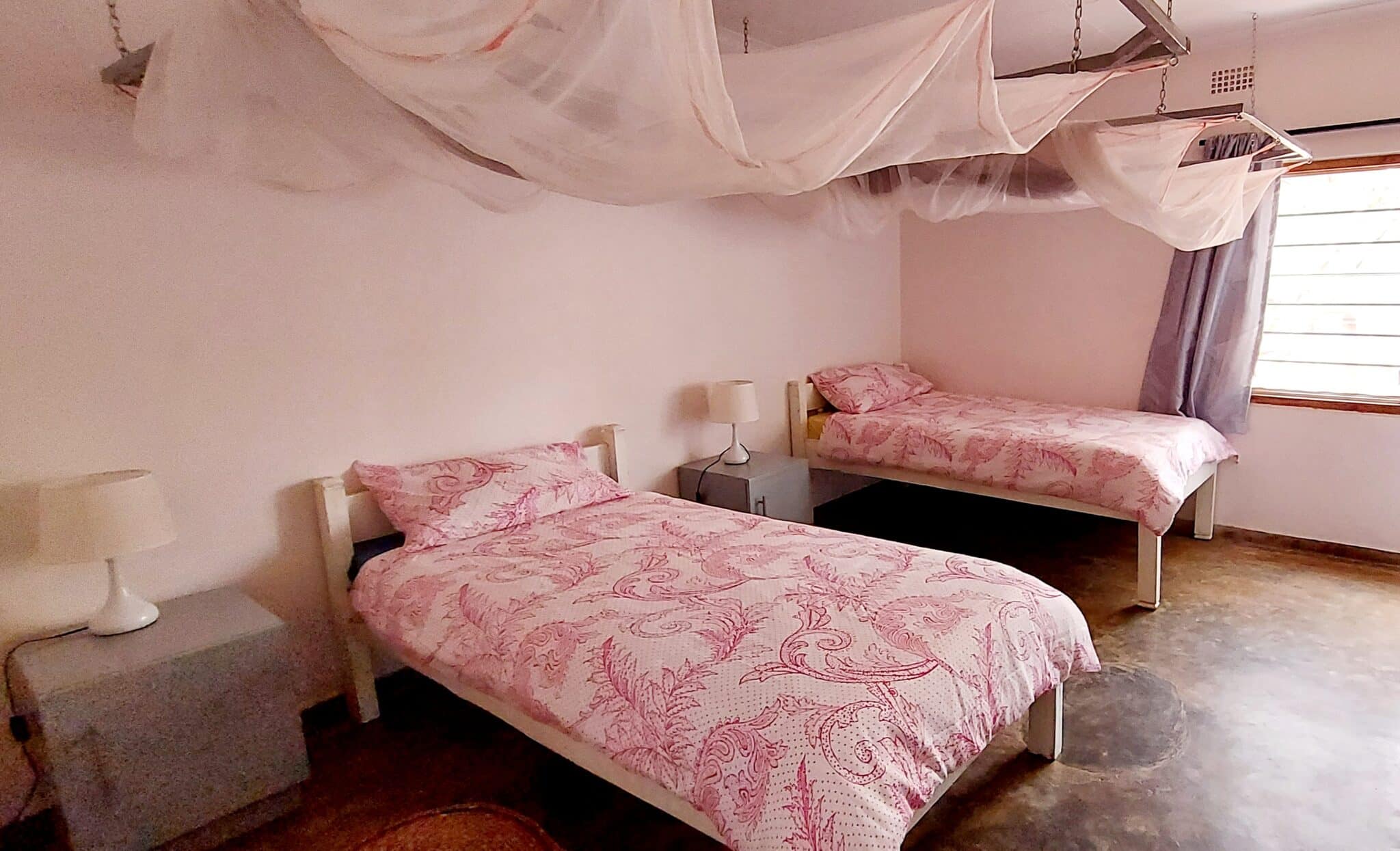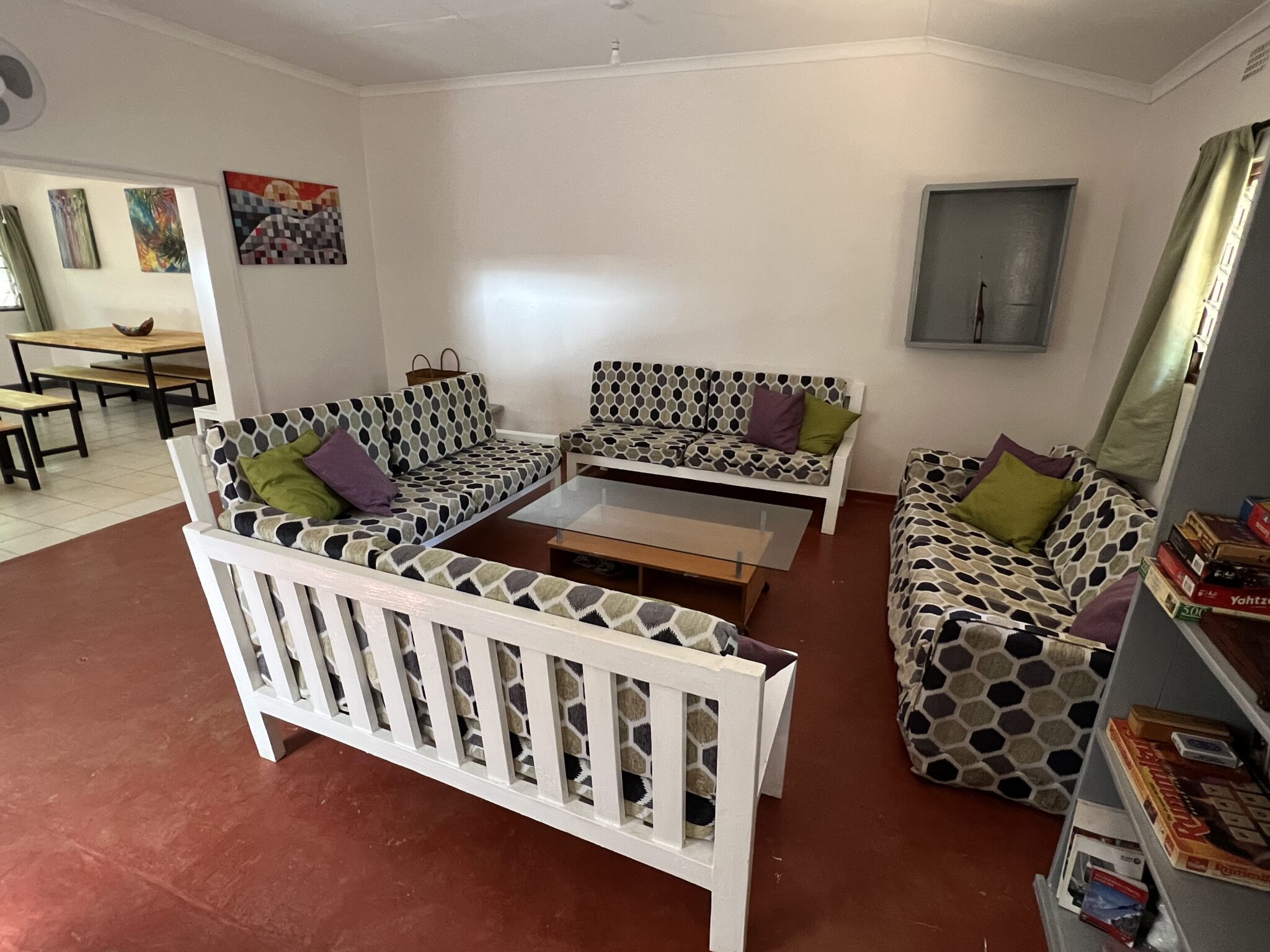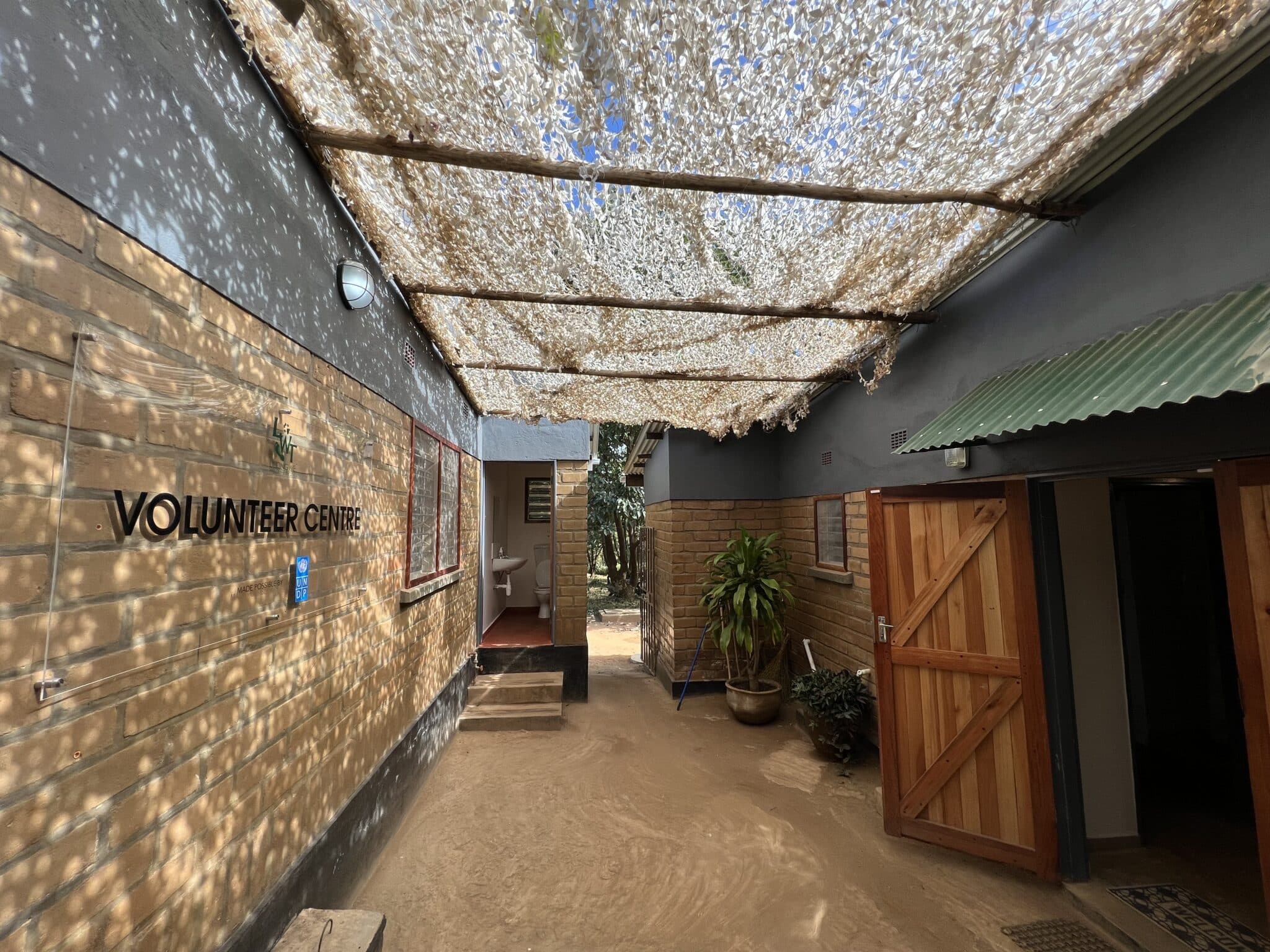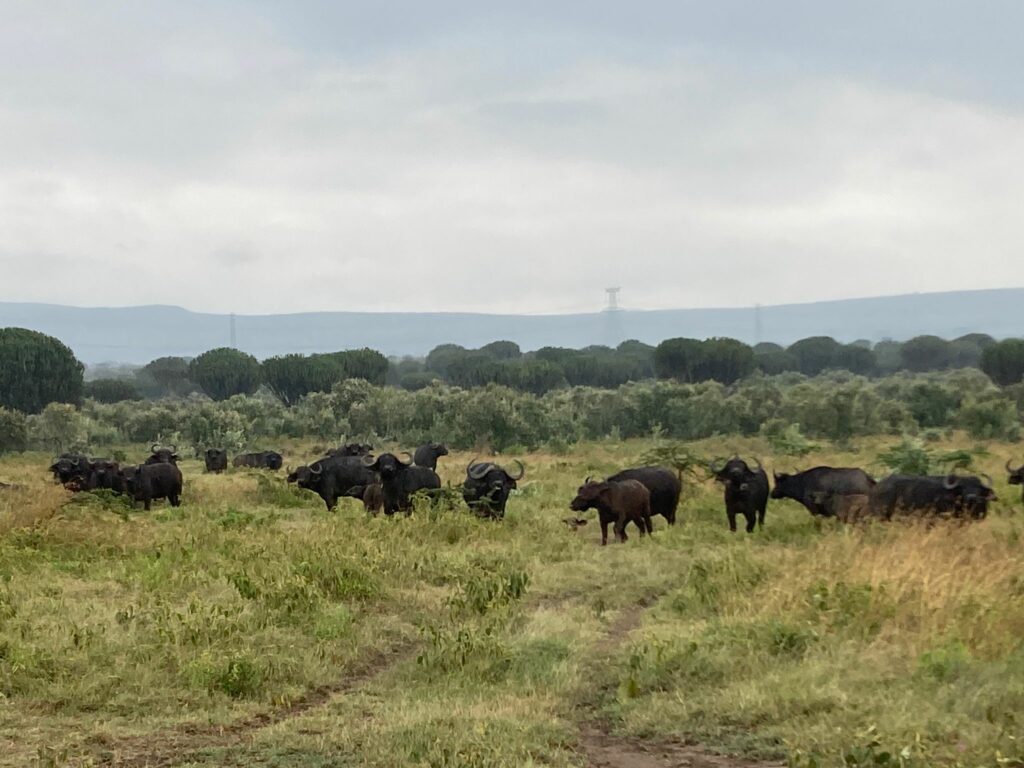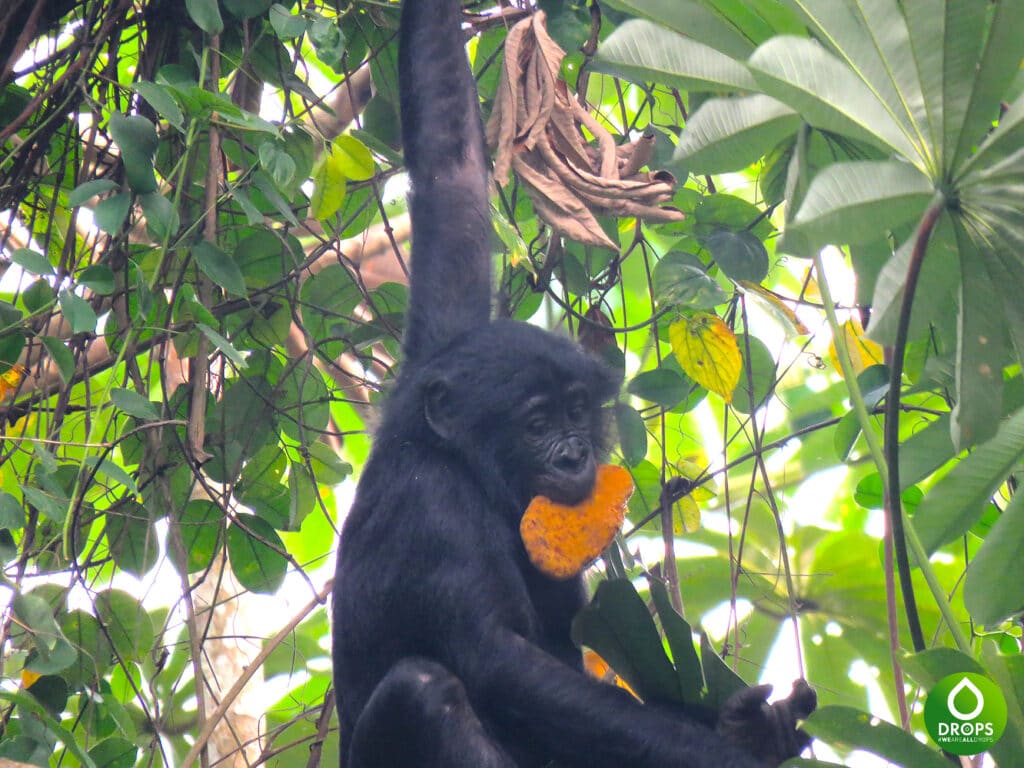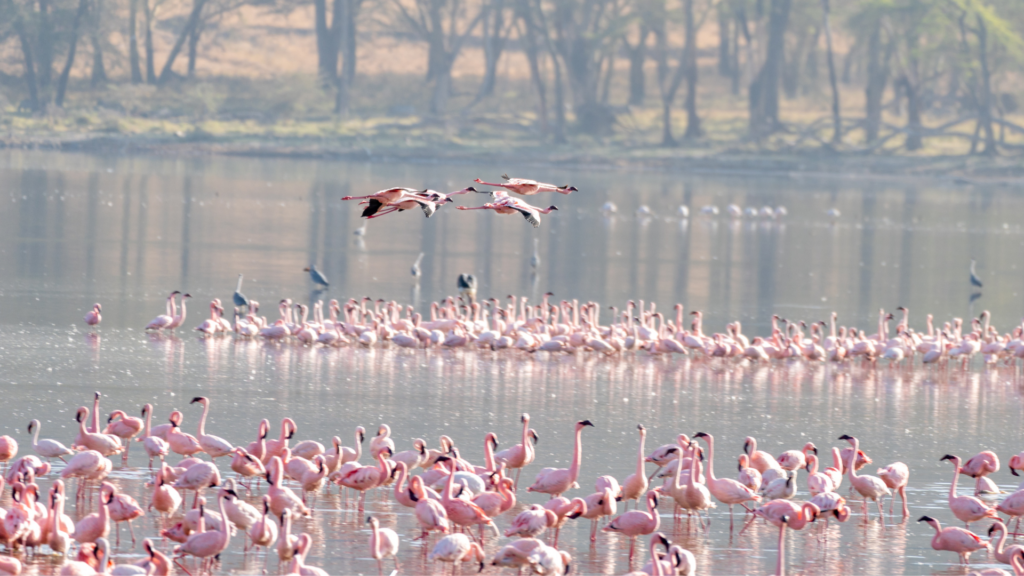Volontaire dans un refuge d’animaux sauvages au Malawi. Le Malawi connait une importante destruction de sa biodiversité. Les animaux sauvages y subissent non seulement la disparition de leur habitat, mais aussi le braconnage. Engagez-vous dans un sanctuaire d’animaux sauvages Voir toutes les missions d’écovolontariat en Afrique.
L’unique sanctuaire d’animaux sauvages au Malawi
Notre partenaire est une ONG qui gère le seul sanctuaire de faune sauvage du Malawi. Ce sanctuaire est considéré comme l’un des meilleurs d’Afrique pour ses installations et ses normes élevées en matière de bien-être animal. Il est accrédité par la Pan African Sanctuary Alliance (PASA), la Global Federation of Animal Sanctuaries (GFAS) et le programme PAW de la Born Free Foundation. En 2023, il a remporté le prix « Outstanding International Sanctuary » de la GFAS.
Environ 200 animaux sauvages
Ce refuge regroupe environ 200 animaux sauvages, dont la majorité sont des primates. Les espèces confiées au sanctuaire sont issues d’activités illégales ou d’un conflit entre l’homme et la faune sauvage. Ces animaux ont subi pour la plupart de mauvais traitement et bénéficie d’un programme unique et adapté de la part de l’équipe. L’objectif de l’ONG est de relâcher le plus grand nombre possible d’animaux dans la nature. Ceux qui ne peuvent pas être relâchés sont soignés et vivent en sécurité dans le sanctuaire.
S’engager comme écovolontaire vous permettra de comprendre et de participer au travail de réhabilitation des animaux sauvages.
Participation à toutes les activités du sanctuaire
Vous passerez la majeure partie de votre temps avec l’équipe dédiée aux soins aux animaux. Vous participerez aux différentes tâches concernant la réhabilitation des animaux sauvages blessés, orphelins et maltraités. Attendez-vous à vous salir les mains, à travailler dur et à bien dormir !
En effet, la réhabilitation des animaux n’est pas toujours glamour. Vous préparerez leur nourriture, nettoierez les enclos et vous réveillerez à 3 heures du matin pour nourrir des singes orphelins ! Vous agirez toutefois de manière concrète pour le bien être animal.
Voici quelques-unes des tâches qui vous seront confiées
- Nettoyage, hygiène, alimentation et travail enrichissement auprès des animaux
- Soins aux animaux orphelins
- Observation du comportement des animaux.
- Vous en apprendrez beaucoup dans les domaines de l’enrichissement, de l’observation et des techniques de réhabilitation des animaux sauvages.
Les horaires de travail dépendent des animaux présents au refuge et du niveau de soins dont ils ont besoin. Les bénévoles du Wildlife Centre travaillent généralement de 8 à 17 heures, mais pendant la saison des orphelins, les repas peuvent être programmés à des heures moins sociables, de sorte qu’il peut arriver que les journées soient longues et que des équipes de nuit soient mises en place. Toutefois, si cela ne vous convient pas, l’équipe peut réorganiser votre emploi du temps. Les volontaires de Lilongwe ont deux jours de congé par semaine.
De 2 à 12 semaines, toute l’année. La période la plus chargée se situe entre octobre et janvier, car le refuge reçoit généralement un plus grand nombre d’animaux orphelins.
- 2 semaines £1,500 soit environ 1782 €
- 3 semaines £1,942 soit environ 2308 €
- 4 semaines £2,445 soit environ 2668 €
- 5 semaines £2,817 soit environ 3348 €
- 6 semaines £3,155 soit environ 3750 €
- 7 semaines £3,477 soit environ 4132 €
- 8 semaines £3,769 soit environ 4479 €
- 9 semaines £4,044 soit environ 4805 €
- 10 semaines £4,287 soit environ 5095 €
- 11 semaines £4,527 soit environ 5380 €
- 12 semaines £4,744 soit environ 5638 €
Inclus dans le tarif
- Logement
- Nourriture, thé, café
- Transfert aéroport et tous les transports liés à la mission
- Encadrement
- Carte SIM locale et t-shirt
Non inclus dans le tarif
- Vols
- Visa
- Vaccination et radio TB
- Effets personnels et excursions
- Assurance voyage
Logement
La maison des volontaires peut accueillir jusqu’à 17 personnes à la fois dans six chambres (un supplément pour une personne seule peut être demandé pour obtenir une chambre privée). La maison comprend également un salon, une cuisine, des salles à manger intérieures et extérieures, deux salles de bains, une buanderie, une terrasse extérieure et un jardin. Le WiFi et les services de nettoyage et de blanchisserie sont fournis. Le bâtiment est situé au milieu du sanctuaire, ce qui signifie que vous serez en immersion dans le bush après une dure journée de travail. Vous passerez vos soirées au coin du feu à écouter les bruits de la forêt.
Le lieu
Le sanctuaire se trouve dans une réserve naturelle de 70 hectares située au milieu de la capitale du Malawi, Lilongwe. La réserve abrite des animaux sauvages tels que des antilopes, des crocodiles, des petits carnivores et des hyènes, ainsi que plus de 100 espèces d’oiseaux. Il y a 5 km de sentiers de randonnée à travers la forêt et le long de la rivière Lingadzi, et un café sur place qui est l’endroit idéal pour un moment de lecture ou d’étude au calme.
Repas
Les repas sont préparés par le chef sur place tous les jours, sauf le dimanche, où les volontaires sont invités à cuisiner eux-mêmes. Le menu est végétarien/végétalien et comprend un mélange de plats internationaux et locaux. Avertissez l’association si vous avez des exigences alimentaires particulières. Les volontaires sont également invités à acheter d’autres comme la viande s’ils le souhaitent.
Arrivée
Il est préférable d’arriver le lundi ou le mardi, même si les arrivées sont possibles les autres jours de la semaine. Un membre de l’équipe vous accueillera à l’aéroport.
Le Wildlife Centre n’est qu’à 10 minutes de la ville avec ses restaurants, ses magasins et ses marchés si vous avez envie de changer d’air. L’équipe est heureuse d’organiser des soirées jeux et cinéma, des spectacles culturels et des sorties. Des excursions personnelles en dehors de Lilongwe peuvent être réservées par l’intermédiaire des voyagistes qui vous seront recommandées par le centre.
A propos du partenaire
Lilongwe Wildlife Trust (LWT) est l’une des principales organisations de conservation du Malawi. Établi en 2008. L’ONG gère le seul sanctuaire de faune sauvage du Malawi et une série d’autres programmes axés sur le sauvetage et le bien-être des animaux sauvages, la recherche sur la biodiversité, la justice en matière de conservation, l’éducation à l’environnement et l’organisation de campagnes. Toutes les missions avec LWT

